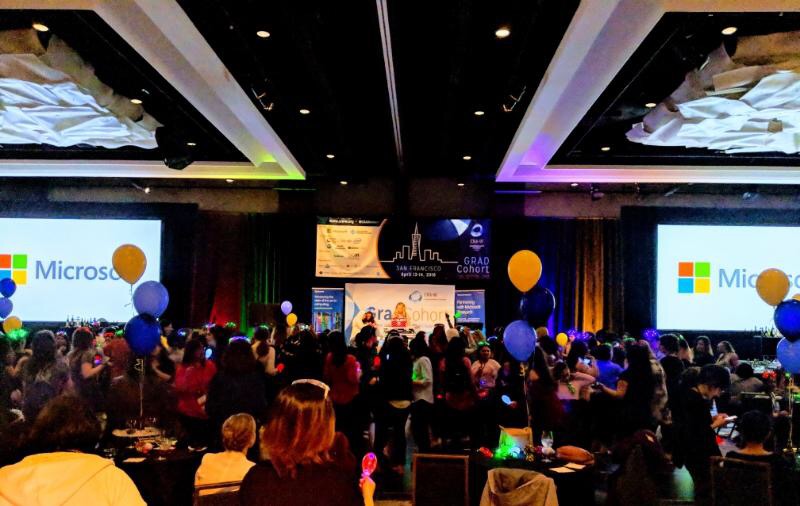Khoury News
CCIS students inspired by conference for graduate women in computing
By Erica Yee Though female computer scientists may often feel underrepresented in their field, they were very much in the majority at a recent conference for graduate students. The Computing […]

By Erica Yee
Though female computer scientists may often feel underrepresented in their field, they were very much in the majority at a recent conference for graduate students.
The Computing Research Association’s Committee on Women (CRA-W) puts on the annual Grad Cohort Workshop for graduate students in computing-related studies. Three College of Computer and Information Science (CCIS) PhD students – second-year Lucianna Kiffer, third-year Everlyne Kimani, and second-year Clara De Paolis Kaluza – had the opportunity to attend the conference, which was held in San Francisco this past April.
“It was a good opportunity to spend two days hearing from other women who were mostly professors in the field or industry researchers,” said Kiffer.
Keynote speaker Maria Klawe especially impressed the students with her humor and honesty. Previously a computer science professor, Klawe currently serves as the first female president of Harvey Mudd College. Kiffer was inspired by “how she’s making all the departments more representative of different genders, different races, and different backgrounds, and advocating for mental health awareness.”
De Paolis Kaluza also noted Klawe’s commitment to diversity. “Diversity and inclusion is an issue very dear to me, so getting President Klawe’s perspectives and recommendations for departments, faculty, and students to increase diversity was very valuable, especially given the great strides that have been achieved at Harvey Mudd,” explained De Paolis Kaluza. “She also shared stories of her career and the challenges she encountered. It was a rare privilege to get such a candid talk from someone so accomplished and at such a senior position.”
Apart from the keynote, the hundreds of students attended different sessions depending on their program year that reflected respective requirements or challenges. The sessions covered a wide range of topics relevant for graduate students, all under the context of how to thrive in a field where women are underrepresented. Topics included how to choose a research topic, how to write a paper, how to cultivate a relationship with your advisor, and how to build a professional persona.
“There was a really good segment on work and personal life balance, and how critical it is for your own mental health to be able to find your own balance and to become more productive,” said Kiffer.
Although being a woman in an underrepresented field has its challenges, Kimani has found that female mentors have been “vital to [her] success and motivation to participate in computing research.”
She highly recommends the CRA-W Grad Cohort workshop to other graduate women in computer science. “This conference is a great networking opportunity and can help you find career mentors and even friends that you might have a lot in common with,” Kimani continued.
De Paolis Kaluza also noted the opportunities to connect with fellow students and potential mentors. “It’s an amazing opportunity to meet and network with women from other schools and also connect with senior faculty and industry leaders from around the country,” she said.
As Kiffer, Kimani, and De Paolis Kaluza continue their academic journeys in computer science, they hope to apply tangible tips from the conference and broaden their networks.
“Going to these kinds of events is good because it’s weird to be surrounded by so many women talking about computer science – a good weird,” said Kiffer.